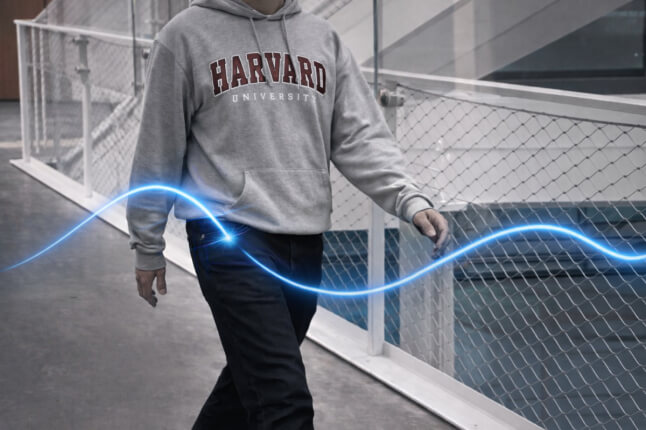News
Brockett is a pioneer in control systems theory, founder of the Harvard Robotics Laboratory, and a 45-year member of the Harvard faculty.
Cambridge, Mass. – July 2, 2014 – Roger W. Brockett, An Wang Research Professor of Electrical Engineering and Computer Science at the Harvard School of Engineering and Applied Sciences (SEAS), has received the 2014 John R. Ragazzini Education Award of the American Automatic Control Council.
Brockett, a pioneer in control systems theory, founder of the Harvard Robotics Laboratory, and a 45-year member of the Harvard faculty, was recognized “for inspirational mentorship of generations of graduate students who have participated in defining the field of control engineering.”
Brockett received his Ph.D. from Case Institute of Technology (now Case Western Reserve University) and began his teaching career at the Massachusetts Institute of Technology (MIT) in 1963, joining the Harvard faculty in 1969. He retired from teaching in 2011.
Over the course of his career, Brockett mentored more than 60 Ph.D. students, about 50 of them at Harvard, consistently guiding their research toward seminal dissertations in control and systems theory.
His former students remember his energy, his passion, and his exacting standards.
"Dr. Brockett's no-prepared-notes, improvisational lecture style came as a shock at first,” said Frank Chongwoo Park, Ph.D. ’91. “It didn't take long for me to realize that his pedagogical style was much more effective than what I had been used to [at MIT]; it forced me to think more deeply about fundamental concepts rather than clever techniques for problem solving.
"It took me a few years longer to realize that I had learned from a once-in-a-generation master.
"On the rare occasion that I thought I had a new and interesting idea or problem, and mentioned it to him, he would pull out some dusty notes that he had worked on 20 years before that addressed an even more advanced version of the problem, usually with a solution."
Brockett’s work was prolific from the start: his early research at MIT, which focused on stability, produced approximately 20 major papers in the span of just six years. Then, at Harvard in the 1970s and '80s, Brockett laid the foundation for the field of geometric nonlinear control theory. His research on the nonlinear filtering and estimation problem “answered the most basic question that was driving a great deal of research at the time,” according to Vahid Tarokh, Perkins Professor of Applied Mathematics, Vinton Hayes Senior Research Fellow of Electrical Engineering, and Area Dean for Electrical Engineering at SEAS.
Brockett also had a knack for recognizing important problems, questions that were worth pursuing, ahead of colleagues in his field. Publications by Brockett and his students defined entirely new areas of research, such as information-based control, nonholonomic systems and feedback stabilization, lie theory and robotics, differential equations that solve discrete problems, and quantum computing.
“He developed a reputation in the field of control theory of being a rather harsh critic. He would often force his interlocutor to deconstruct his claimed contribution to get to the essence of what is new, and get rid of all ornaments and window dressings,” said Ali Belabbas, Ph.D. ’07. “However, Professor Brockett applied the very same principles to his own work, and this has led him to have a continued stream of important scientific contributions throughout his career.”
According to Google Scholar, Brockett’s 1983 paper “Asymptotic Stability and Feedback Stabilization” has been cited more than 900 times.
Brockett was also responsible for the creation of the fundamental undergraduate course ES 50, “Introduction to Electrical Engineering,” and co-created the hands-on course ES 51, “Computer-Aided Machine Design,” which asks undergraduates to design and build catapults and remote-control cars.
In 1983, he founded the Harvard Robotics Laboratory (HRL), pursuing research in areas such as robotic manipulation and control of quantum systems. HRL created new opportunities for undergraduates to take part in engineering and mathematics research, and Brockett supervised many of their senior theses.
In 2011, he received the Capers and Marion McDonald Award for Excellence in Mentoring and Advising, which recognizes leaders in engineering and applied sciences “who, as exemplary mentors and advisors, have significantly and consistently supported the personal and professional development of others.”
“What I find most interesting about Roger’s mentoring… is that the mentorship does not end with the student’s graduation,” Tarokh said.
The American Automatic Control Council (AACC) is an umbrella organization that encompasses the groups and individuals of member societies with an interest in control science and engineering, including the American Institute of Aeronautics and Astronautics, the American Institute of Chemical Engineers, the American Society of Civil Engineers, the American Society of Mechanical Engineers, the Institute of Electrical and Electronics Engineers, the International Society of Automation, the Society for Modeling & Simulation International, and the Society for Industrial and Applied Mathematics. The AACC presented its annual awards at a ceremony in Portland, Ore., on June 5, 2014.
Topics: Bioengineering, Academics
Cutting-edge science delivered direct to your inbox.
Join the Harvard SEAS mailing list.



